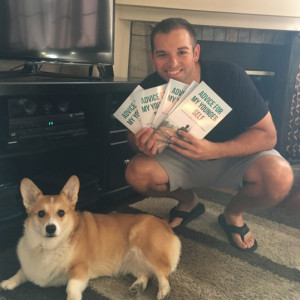What tools do you use to stay productive?
Interview with Kay, an independent software consultant who found freedom in remote work
Email is the main tool, I think. I do "zero inbox" for 10 years now and it works like a nice todo list. I get a mail, look what I can do with it and when I did it, I simply archive the mail. Sometimes this is simply "answer the mail" sometimes it's more.
Next is Slack/WhatsApp, for fast small messages. German companies seem to prefer WhatsApp groups, non-German companies prefer Slack.
Personally I really hate synchronous communication.
It has its place, but some people using it as a way of supervision. "He's not online in Slack, so he's not working!" etc. Really bad.
Then there is GitHub Issues or JIRA for the day to day development work.
Also Google Hangouts/Skype, for some explanatory or exploratory meetings. If someone doesn't understand whats happening or the team doesn't know what to do next, this really speeds things up. Also, some people are unbearable on text media, so you have to do phone calls to keep them in line, haha.
Learn how Kay made the jump from full-time employee to full-time remote consultant
Read full interview from Interview with Kay, an independent software consultant who found freedom in remote work.
Interview with Nico, marketer and advocate for remote worker mental health
Slack, Google Hangouts, and Trello.
"I've felt burnout HARD in the past. When it hits, it HITS, and it can be tough to recover." In this interview, Nico shares his strategies for balancing work and life and reveals the key to avoiding burnout.
Read full interview from Interview with Nico, marketer and advocate for remote worker mental health.
Interview with Michael about being an entrepreneur and freelancer
As far as tools for remote work nothing crazy; laptop, desktop, video conference Zoom or Skype.
I use Asana and Trello with clients but I track everything on my end with Google Docs and Google Calendar.
Michael is an online entrepreneur, author, and freelance writer who specializes in self-improvement and personal finance.
Read full interview from Interview with Michael about being an entrepreneur and freelancer.
Interview with Pamela, a travel writer adjusting to freelancing
I’m a writer, so I just need a laptop and Wi-Fi connection, and I’m good. I find I’m using Canva quite a bit for presentations and invitations.
I’m also a member of a lot of Facebook groups related to my line of work. These are useful for connecting with others, getting questions answered quickly, and finding inspiration and support.
Pamela is new to the world of freelancing. In this interview, she shares the ups and downs of adjusting to the gig economy.
Read full interview from Interview with Pamela, a travel writer adjusting to freelancing.
Interview with Chloe, a customer support freelancer and multi-project expert
I have a MacBook, a Mac Desktop, a printer/scanner and my trusty pen, paper, highlighters, and binders for each project.
Chloe uses the flexibility of freelancing to her advantage—see how she successfully manages multiple projects at one time.
Read full interview from Interview with Chloe, a customer support freelancer and multi-project expert.
Interview with Andrew, a freelance writer who works remotely
Usually I use whatever tools my clients request of me. Most often I find myself using Trello, which is a great project manager system that allows multiple people to coordinate on a group project together.
It’s easy to use and helps me organize which jobs are going to who. When I’m overwhelmed with a large amount of projects, I use my own Trello board to organize them all properly.
Other than that, I use little else other than Microsoft Word and my phone’s timer. Using the timer helps me stay focused on getting a certain number of words done in an hour if I’m on crunch time.
Andrew became a full-time freelance writer after experimenting with freelance marketplaces. After the first month, he was already earning more than his full-time job.
Read full interview from Interview with Andrew, a freelance writer who works remotely.
Interview with Deborah, a remote entrepreneur changing perceptions about remote work
- A Roost laptop stand and separate keyboard so I can work comfortably for long periods.
- Noise-canceling headphones so I can listen to music or to my interviews without disturbing coworkers, and so I can block out noise that's distracting me
- When I'm in the analysis stage of a project, I also love to have some magic whiteboard sheets that stick to the wall or window using static and are reusable. I find these useful to jot down my thoughts or ideas as they pop into my head as I'll be percolating away regardless of whether or not I'm actually working at the time. My windows at home always have at least one or two sheets with random thoughts scribbled on them. One of the projects I'm working on at the moment is health-related, and I made some notes about it causing 'relationship issues' on my whiteboard. My boyfriend came round and was trying to decipher my notes, and he thought I'd been writing stuff about him.
Deborah has traveled the world sharing her research about the pros of remote work. See how she is helping companies and clients understand the importance of location independence.
Read full interview from Interview with Deborah, a remote entrepreneur changing perceptions about remote work.
Interview with Mehmet, a nomadic digital maker and entrepreneur
The most helpful productivity trick I do is, I try to stay in the browser. Using native apps gives too much freedom to the tools being unnecessarily distractive with their notifications. I use Slack, emails even sometimes coding work within the browser versions.
I used the Focus app and also used Stretchly to tame my distractive brain while I work. I believe most of us don’t have the discipline to not respond to a message we receive or lose ourselves in the depths of the internet.
I used to do more rigorous GTD techniques like Pomodoro, or tried half of the to-do apps in their different versions and eventually landed on keeping my to-dos in simple text files (super portable between devices) and without trying anything special.
I try to define my highlight for the day and focus on one single great task to finish, and that’s it.
Mehmet has embraced his remote team leadership style. Hear about his most helpful productivity trick and why he has "quiet" days for his staff.
Read full interview from Interview with Mehmet, a nomadic digital maker and entrepreneur .
Interview with Cecilia, a content writer managing her remote career in Dubai
I use many tools to stay productive!
To name a few, I use the StayFocusd extension for Chrome to block distracting websites and Qbserve for Mac track of how I spend my time on the computer. I'm a big fan of the StayFocusd nuclear option to block all sites except those I've whitelisted.
To keep me from getting distracted on my phone, I use App Detox to block distracting apps and Fabulous to create good productivity habits.
Although sometimes, what works best for me is as simple as turning off my phone and the wifi.
Cecilia got her start translating blog posts, and in 2018 she went fully remote. See her tips for managing an international remote work career.
Read full interview from Interview with Cecilia, a content writer managing her remote career in Dubai.
Interview with Emma, a freelance marketing consultant
I probably go a bit overboard here. I have a separate notebook for each client, a master to-do list, a few Trello boards, a couple of LucidChart maps, oh, a whiteboard, a sketch pad, and the notes function on my iPhone.
It sort of depends on the type of work I’m doing too. But I’d say it’s my good old to-do list and pen and paper that keeps me most productive.
The act of writing things down is still the best tool to both help with creativity and make that commitment to do something.
Emma is thriving as a freelance marketing consultant—see her tips on managing client demands & making yourself marketable as a freelancer.
Read full interview from Interview with Emma, a freelance marketing consultant.








